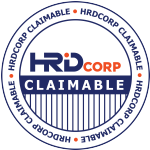
Intermediate Qualification in Islamic Finance (IQIF) : Takaful
Designed to cater to a person’s own area of expertise, this distinctive qualification focuses on the area of Takaful. At this level, candidates will concentrate on specialized modules related to Takaful with emphasis on the application of concept to practical aspects of Takaful operations.
IQIF (Takaful) comprises of the (10) modules, which aims to equip the candidates with solid knowledge on the whole spectrum of Takaful as well as to develop necessary skills and expertise to deal with issues and problems prevailing the Takaful practises.
Learning Outcomes
Ability and competency to:
- Examine the processes and procedures involved in the operations of Takaful
- Apply the knowledge and skills required in performing tasks related to the job
- Introduce basic innovations in Takaful products and processes
- Learn to exploit current market developments
Mode of Learning
- Face-to-face
- Online (e-learning)
Online Access
12 months (1 year)
Contact: training@ibfim.com

M1: Key Aspects of Takaful
This module will deliberate on the nature of risk, risk management process and the rationale for Takaful as an Islamic risk management’s tool. This is followed by an overview of Takaful from both historical and Shariah perspectives, the operating models and commercial contracts used in Takaful and issues associated with Takaful models.
M2: Takaful Products
This module discusses on the principles and characteristics applied to Takaful products.
In addition, participant will be introduced to the characteristics of two basic types of products namely family and general Takaful that are available in the market.
M3: Takaful Company Operations
This module will provide an overview of Takaful company operations which includes the regulatory framework, business model, structure, practise and conduct of Takaful distributions.
This module covers in-depth on the Shariah Governance Framework model and the roles and responsibilities of a Shariah committee in ensuring the activities and operations carried out by the Takaful Operator does not contravene with the Shariah.
M4: Marketing for Takaful Company
This module will present concepts that can be applied to marketing in a Takaful organization. The discussion on marketing invariably will involve the various components of the marketing mix, namely product, promotion, pricing, people, place (distribution), process and physical evidence. These 7Ps can be used by Takaful Operators to frame their marketing strategies. Other topics covered include the prohibited business conduct, the association rules on sales, the product development and Takaful distribution channels.
The objective of this module is to train the marketing personnel on the marketing aspects of Takaful, particularly on acquiring and retaining client’s management.
M5: Customer Service for Takaful Company
This module will deliberate on the importance of the service standards and the impact on customer’s experience, what makes a good customer-service, how to deliver effective customer service and how to handle demanding customers and difficult situations.
M6: Quantitative Aspects of Takaful Operation
This module presents on the financial aspects of Takaful, the concept of capital and the use of capital in a Takaful operations. In this module participants will appreciate the effect of regulatory rules on capital requirements, Takaful fund solvency requirements; insurer’s admitted assets and the concept of Risk-Based Capital (RBC).
M7: Basic of Takaful Underwriting
This module exposes participants with one of the most important parts of Takaful processes that is the underwriting function. It will cover on the objectives and basic principles of Takaful underwriting and the processes as how the Takaful operator assesses an application. Throughout the course, participants will see the underwriting process on classes of Takaful products namely Family and General and the implementation of Shariah perspective on the underwriting process. This module also covers topics such as control mechanisms for underwriting operations and regulatory requirements that bind to the underwriting processes.
M8: Family and General Takaful Processes
This module will discuss on the claims management process and its operational aspects in Takaful business. Participants will learn procedures on how to handle claims and issues related to claims of General and Family Takaful.
M9: Retakaful
This module discusses the philosophy and concepts of Reinsurance and Retakaful along with the historical background. Participants will learn on the operational, regulation of Retakaful and the administration of Retakaful business. Shariah features in Retakaful will be discussed in-depth within the module. Lastly in Chapter 4 & 5, the discussion will be on forms of Retakaful and types of Retakaful currently available and practised in the market.
M10: Global Development & Opportunities Ahead for Takaful
This module is designed to give an exposure to participants on the global development of Takaful industry, highlights on the organizations behind supporting the Takaful companies; explaining on their roles and functions. Apart from that, participants will learn about the global development and its effects towards Takaful and the opportunities ahead.
The Associate Qualification in Islamic Finance (AQIF) certificate holder or equivalent is a prerequisite for a candidate sitting for the IQIF assessment
Method of Examination:
One Hundred (100) Multiple Choice Questions
Two and a half (2 ½) hours examination
Passing mark: 60%
